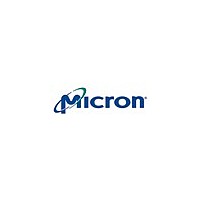MT47H64M16HR-3 IT:H Micron Technology Inc, MT47H64M16HR-3 IT:H Datasheet - Page 104

MT47H64M16HR-3 IT:H
Manufacturer Part Number
MT47H64M16HR-3 IT:H
Description
DRAM Chip DDR2 SDRAM 1G-Bit 64Mx16 1.8V 84-Pin FBGA Tray
Manufacturer
Micron Technology Inc
Type
DDR2 SDRAMr
Datasheet
1.MT47H64M16HR-3_ITH.pdf
(134 pages)
Specifications of MT47H64M16HR-3 IT:H
Density
1 Gb
Maximum Clock Rate
667 MHz
Package
84FBGA
Operating Supply Voltage
1.8 V
Maximum Random Access Time
0.45 ns
Operating Temperature
-40 to 85 °C
Organization
64Mx16
Address Bus
16b
Access Time (max)
450ps
Operating Supply Voltage (typ)
1.8V
Package Type
FBGA
Operating Temp Range
-40C to 85C
Operating Supply Voltage (max)
1.9V
Operating Supply Voltage (min)
1.7V
Supply Current
135mA
Pin Count
84
Mounting
Surface Mount
Operating Temperature Classification
Industrial
Lead Free Status / RoHS Status
Compliant
Figure 56: Data Output Timing –
WRITE
PDF: 09005aef821ae8bf
1GbDDR2.pdf – Rev. V 6/10 EN
LDQS#/LDQS/UDQ#/UDQS 3
All DQs collectively 4
DQ (first data valid)
DQ (last data valid)
DQS#/DQS or
Notes:
CK#
CK
WRITE bursts are initiated with a WRITE command. DDR2 SDRAM uses WL equal to RL
minus one clock cycle (WL = RL - 1CK) (see READ (page 76)). The starting column and
bank addresses are provided with the WRITE command, and auto precharge is either
enabled or disabled for that access. If auto precharge is enabled, the row being accessed
is precharged at the completion of the burst.
Note:
For the WRITE commands used in the following illustrations, auto precharge is disabled.
During WRITE bursts, the first valid data-in element will be registered on the first rising
edge of DQS following the WRITE command, and subsequent data elements will be reg-
istered on successive edges of DQS. The LOW state on DQS between the WRITE com-
mand and the first rising edge is known as the write preamble; the LOW state on DQS
following the last data-in element is known as the write postamble.
The time between the WRITE command and the first rising DQS edge is WL ±
Subsequent DQS positive rising edges are timed, relative to the associated clock edge,
as ±
T0 1
5.
6. The data valid window is derived for each DQS transition and is
7. DQ8, DQ9, DQ10, D11, DQ12, DQ13, DQ14, or DQ15.
1. READ command with CL = 3, AL = 0 issued at T0.
2.
3. DQ transitioning after DQS transitions define
4. All DQ must transition by
5.
6.
7.
8. I/O balls, when entering or exiting High-Z, are not referenced to a specific voltage level,
t
DQSS.
t
t
DQS skew.
t
skew.
t
t
but to when the device begins to drive or no longer drives, respectively.
QH is derived from
DQSCK is the DQS output window relative to CK and is the long-term component of
AC is the DQ output window relative to CK and is the “long term” component of DQ
LZ (MIN) and
HZ (MAX) and
t
t
AC and
T1
DQSS is specified with a relatively wide range (25% of one clock cycle). All of
t LZ (MIN)
t
AC (MIN) are the first valid signal transitions.
t
t
AC (MAX) are the latest valid signal transitions.
DQSCK
T2
t
HP:
t LZ (MIN)
t RPRE
t
QH =
104
t
DQSQ after DQS transitions, regardless of
t DQSCK 2 (MIN)
T3
t
HP -
T3
T3
T3
T3n
t
Micron Technology, Inc. reserves the right to change products or specifications without notice.
QHS.
t AC 5 (MIN)
T3n
T3n
T3n
T4
T4
1Gb: x4, x8, x16 DDR2 SDRAM
T4
T4
t
DQSQ window.
T4n
T4n
t AC 5 (MAX)
T4n
T4n
T5
T5
t DQSCK 2 (MAX)
T5
T5
T5n
© 2004 Micron Technology, Inc. All rights reserved.
T5n
T5n
T5n
t
QH -
T6
t HZ (MAX)
T6
T6
T6
t HZ (MAX)
t
AC.
t
T6n
DQSQ.
t RPST
T6n
T6n
T6n
T7
t
DQSS.
WRITE
















